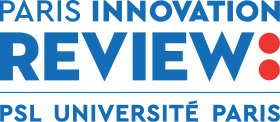The excellent Paris Innovation Review (formerly known as the ParisTech review) just published an interview of Jacques Lewiner (for the ones not knowing him, you may want to have a look at Jacques Lewiner about Innovation. This new article is entitled Research exploitation: catching up at a quick pace!
It begins with:“Academic research is not only a driver of scientific progress. It is a means to change the world. Many discoveries, including in areas related to basic research, can lead to new processes, products or services.”
Lewiner then explains the complexity of a successful exploitation and biases related to it. “The first [bias] is that, when we think about exploitation, we stick to patents. […] But sticking to patents means ignoring the essential, i.e. the entrepreneurial aspect of exploitation. […] Hence the importance of the entrepreneurial aspect: encouraging researchers to found startups and develop by themselves the economic potential of their discovery. The second bias comes [with …] a strong reluctance to admit that a researcher can make money, or even a fortune. […] A researcher’s brain is government property!”
Then Lewiner adresses the topic of licensing – More about it in How much Equity Universities take in Start-ups from IP Licensing? So here is what he says: “Nothing prevents the institution from taking shares in the company. 5% of shares, for example, is a reasonable figure, close to what most dynamic ecosystems offer. […] Holding golden shares would be equally counterproductive. […] In short, we need a whole new culture of investment.”
Lewiner indeed insists on an adequate culture: “Speed is a real challenge and on this sense, a well-equipped institution with some experience and good contacts […] can offer a real added value. Role models can also play an incentive role for researchers. […] All these ingredients of the “startup culture” require transmission.”
In the end, I only disagree with his final comment: “I dream of the day when French doctoral students will answer to the question of what they will do after their thesis with the same mindset as their counterparts in Stanford or Harvard: ‘I’m still trying to figure out in which of my thesis supervisor’s startups I want to work with.’ ” I think Lewiner is wrong. Ideally, they should do their own start-ups, just like they do at Stanford…
PS: thanks a lot to the colleague who mentioned this interview to me 🙂

